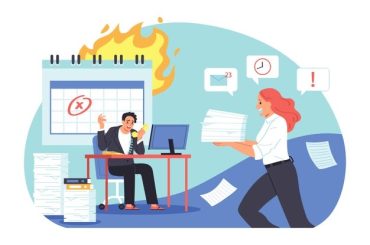 Relating to your addicted son or daughter is possible…especially when you learn to practice “tough love”. The most important thought to keep in mind? You are not alone unless you choose to be. Read more about how to relate to your addicted son or daughter here.
Relating to your addicted son or daughter is possible…especially when you learn to practice “tough love”. The most important thought to keep in mind? You are not alone unless you choose to be. Read more about how to relate to your addicted son or daughter here.
First, A Range of Emotions
Parents of addicted children can sometimes become misguided and misdirected by their emotions. In fact, it’s common for us to feel:
Fear
Shame
Guilt, or
Anger
…when we first find out about a son’s or daughter’s addiction.
For this reason, it is important that – in the beginning – we learn how to deal with our emotions. This article provides parents of drug addicted children with information and resources about the who/what/when/where and how to address substance use disorders.
So, continue reading to learn more on the topic of relating to your addicted son or daughter. All of your questions and/or personal experiences are welcomed at the end.
Focus on What You Want
Having a drug addicted child is definitely not a pleasant thing. A loved one’s addiction brings with it pain, suffering, and loss. Late, sleepless nights. Desperation. And a loss of hope. Do these sound familiar?
It can help to understand some of the major causes of addiction before you even begin looking for help. This way, you’ve got the perspective and outlook required to bring on positive action. So, what causes addiction in the first place?
Some addictions come as a need to experience the unknown. Behind others hides the need to avoid pain and dissatisfaction. In other cases, genetics can trigger a person’s unique response to the euphoria that drugs or alcohol bring on. Mainly, experts agree:
Addiction is caused by a combination of genetic and environmental factors.
Regardless of the reasons, the first mistake parents often make is the so-called “blame game”. This comes as the natural need we have of pinning down a bottom line responsible party for our pain. But the truth is this: when the problem of addiction has already developed, attaching blame to an individual only means wasting time. Instead of looking for the person to blame, parents need to accept the fact that their child has become an addict and then think about alternatives for help. In other words, focus on what you want.
Take Responsibility for What is Yours
Another big deal is the emotional roller coaster families of drug addicts usually go through. I personally think that the main difficulty for every parent who is facing addiction is accepting the problem. Your kids are using drugs. Now what?
It is essential that, as a parent, you remember that you can only control so much. You can show understanding, compassion, and readiness to be present in your son or daughters’ recovery journey. But s/he will have to take the initiative and walk down the recovery road on their own.
Taking responsibility for “your side of the street” means that you look at and change what you can control: yourself. In this light, you can see and change only those behaviors that originate with you. So, take a look at yourself. Maybe even with the help of a psychotherapists. There is no shame in improving your mental health!
Look for and identify where you’ve been:
- Codependent, in allowing certain behaviors to continue.
- Dishonest, or keeping family secrets.
- Misusing your authority, or potentially causing harm, even if subconsciously.
- Unhealthy, in ignoring self-care and taking care of your mental and physical state.
The truth is that addiction does not occur in a vacuum. Addiction is complex, a learned behavior that is often rooted in psychological or emotional pain. Don’t be afraid to open up yourself to exposure. Bring any problems to the light, and see them transform.
Expect Hope AND Despair
Let’s shift the focus now and look at what you can expect of a child who is substance-dependence. To be frank, there is no place for anyone else in an addict’s mind except their drug-of-choice. Drugs do this. In effect, the chemical changes that occur in the brain can literally “hijack” the decision-making process. How?
Psychoactive drugs are self reinforcing. When people get high…they want to repeat. Why? Because the experience is effective! Plus, over time, drugs can numb or block executive function. Drug dependence causes withdrawal symptoms that spur continued use. For these reasons, some people relapse several times before starting a life of relative abstinence.
The harsh reality is that addicts keep making the same promises. Sometimes, we just can’t seem to understand why our children simply does not quit? According to The National Institute on Drug Abuse (NIDA):
“People can’t just stop using drugs easily on their own because repeated drug use changes the brain. Brain imaging studies of people with drug addictions show changes in areas of the brain that are critical to judgment, decision-making, learning and memory, and behavior control. Quitting is difficult, even for those who feel ready.”
It is important for parents to understand that the addiction will not end until the addict decides to end it and asks for help. As a parent you should be aware that you can never make this decision for your addicted son or daughter and every failed attempt to do this will only increase your frustration.
Why Is Relating To Your Addicted Son Or Daughter So Difficult?
Parents find it difficult to relate to their child’s addiction because:
They are in denial about the child’s addiction problem.
They are preoccupied with the shame, guilt and other stigma of addiction.
They lack education in the field of drug addiction.
They do not consult or ask for professional help.
They do not know how to communicate with their children who face addiction problems.
They do not know how to set boundaries and limits for themselves and their children.
The Secret Of Relating To Your Addicted Son Or Daughter
Q: What is the secret of relating to your addicted son or daughter?
A: The key is to learn how to show your love and compassion without enabling your child’s addiction.
Most parents wonder what to do when they find out about their son or daughter’s addiction problem. The first step you need to take as a parent is to ask for professional help. Of utmost importance is to accept the presence of the problem and do not try to fix it on your own. The addiction specialist will determine the severity of your child’s addiction and the need for further treatment. When asking for professional help about your child’s addiction you can always contact:
Certified physicians who specialize in addiction. You can use the American Society of Addiction Medicine (ASAM) website to find a physician.
Psychiatrists. You can search the American Academy of Child & Adolescent (AACAP) website to find the most suitable match in a child and adolescent psychiatrist.
Treatment centers. When your doctor determines the need of further substance abuse treatment for your addicted son or daughter you can always start by contacting the Substance Abuse and Mental Health Service’s Treatment Locator service at 1-800-662-HELP (4357)
SAMHSA online treatment locator on their website: http://findtreatment.samhsa.gov/
Support groups. Alcoholics Anonymous (AA), Narcotics Anonymous (NA), Cocaine Anonymous (CA), and Teen-Anon groups are an excellent free resource where you can learn about addictive thinking just by listening to other people in recovery telling their stories. These groups are opened for everyone and all you need to do is sit and listen.
Education for addicted patients and families. In order to educate and better understand what is going on with your addicted son or daughter you can find useful information on the National Institute on Drug Abuse (NIDA) website.
Top 5 Things To Avoid
But it’s not just about action steps. Relating to your child also involves things you should not do. Here are some behaviors you should avoid when relating to your addicted son or daughter:
- Avoid blaming and criticizing your son or daughter.
Learn to listen to your child. Try to hear what they have to say. It is worth listening. If you consult professional mental health counselors, try to carefully listen and apply their suggestions. Instead of just searching for answers about what to do you should for a start… really listen! Sometimes, a solution-oriented way of thinking might get you stuck into one alternative, but the truth is that there is not a magic wand or a single answer or methodology that works for everyone.
- Do not try to fix the situation on your own.
Addiction is not something that can just go away or vanish with time; it is a disease which is complex. In order to educate, plan, and take the best steps towards family recovery … always ask for help from professionals who are trained in the field and can explain to you appropriate targets.
- Denial.
Early treatment is best. But some parents simply close their eyes when faced with their child’s addiction problem. This, in fact, is really the worst possible choice of responses: denial leads to doing nothing. Doing nothing leads to observing your child fall deeper into their addiction. Therefore, learn the signs of drug addiction and be aware that the condition is a medical one. It is treated medically. Denial simply prolongs the problem and makes the healing process more difficult.
- Enabling.
Enabling behavior is something which we all carry from birth, it comes from the natural instinct to love. However, enabling your addicted son or daughter is not in their interest, nor yours. Most enabler parents are not aware what they are doing because their motives come from the need to help their addicted son or daughter. When an addict is actively using drugs he/she needs to see that they are powerless to control their use and parents can help them realize this by setting boundaries. Speak with a family counselor about ideas for who to set boundaries and what those boundaries might be.
- Self-sacrifice.
Parents want to do everything in their power to help their addicted son or daughter. Most of the time, they neglect their own lives and forget about daily tasks. As a parent you need to remember that every time you pause your life, you are giving the addict control. So, stop being the victim. Start taking control. Make plans. Take care of yourself. Control what you can…and leave the rest.
An Extra, Secret Tip
There is a proverb that says:
“Plans fail for lack of counsel, but with many advisers, they succeed.”
The more you educate yourself and learn about the addiction problem your child is facing, the better you know what you’re up against. Learn to accept the fact that your son or daughter is facing physical, emotional, and mental problem all rolled into one. Professionals who are experienced in the parent-child addiction dynamic deserve your trust! They can help you navigate your options…and help advise you better in person.
In the end, as you learn how to love your child without giving them the chance to emotionally blackmail you…you’ll come into the real meaning of “unconditional love”. You’ll learn to show your child that you are there for him, but you also need to show them that you cannot walk the recovery road for them, you can only walk besides them.
Questions?
Did we answer questions? Create some new ones? If you have any additional questions or want to share your experience you are welcomed to do that in the comments section below.
Plus, every personal experience about relating to an addicted child is valuable and might help others. Feel free to ask your questions in the comments section below. We try to respond to all legitimate inquiries personally and promptly.
____________________________________________________________________________________________________________________________







2 Comments
Under support groups, you need to add MA (Marijuana Anonymous). This is a addiction not often taken seriously, but just as valid as alcoholism or cocaine addiction. This twelve step group has been invaluable to me, and offers phone meetings in addition to local meetings.
Thanks for this article, and the great comment by Sally!
An additional challenge is when mental illness is present. Symptoms of Schizophrenia may make a person appear to be using drugs, even when they aren’t. It can be very tricky. If you are in doubt, please get help, regardless.